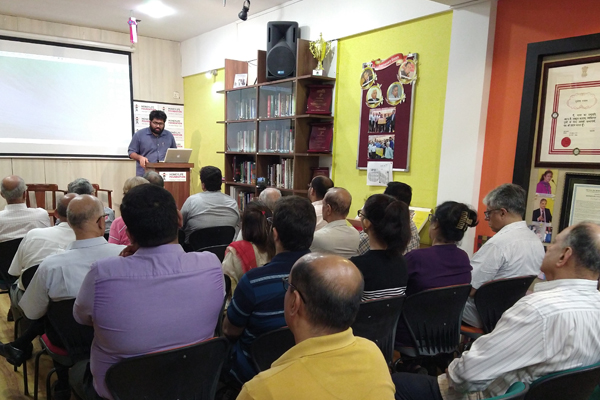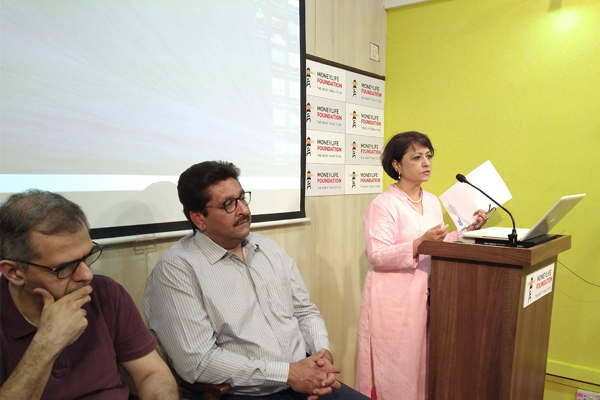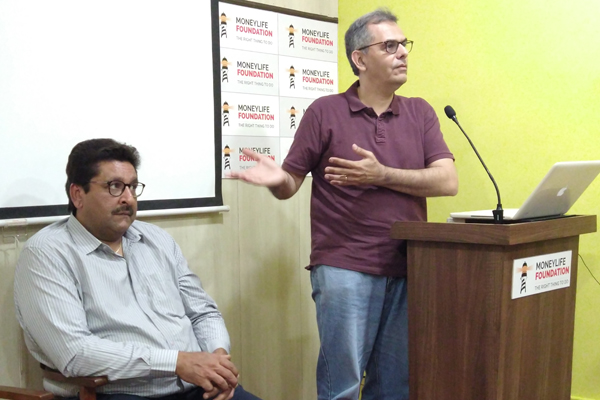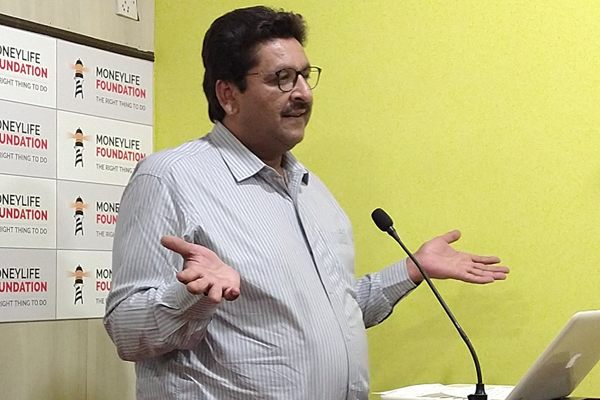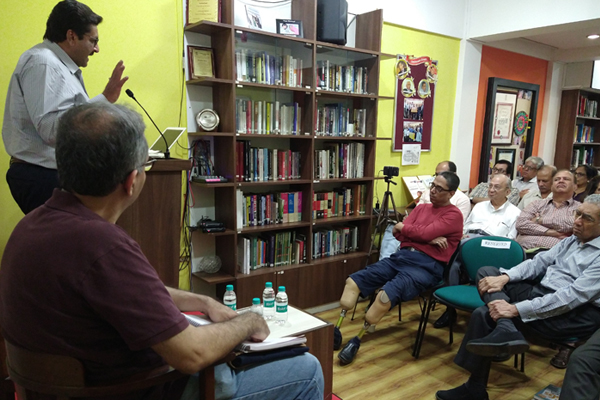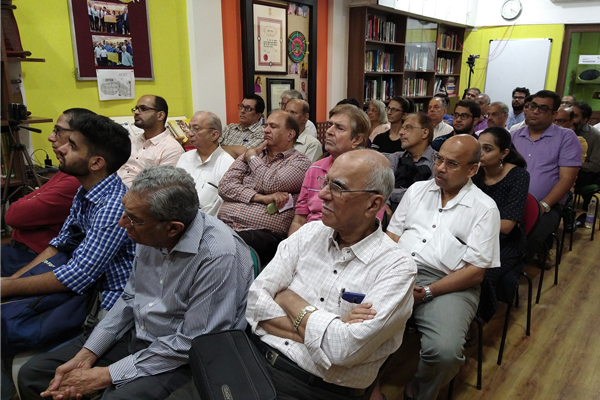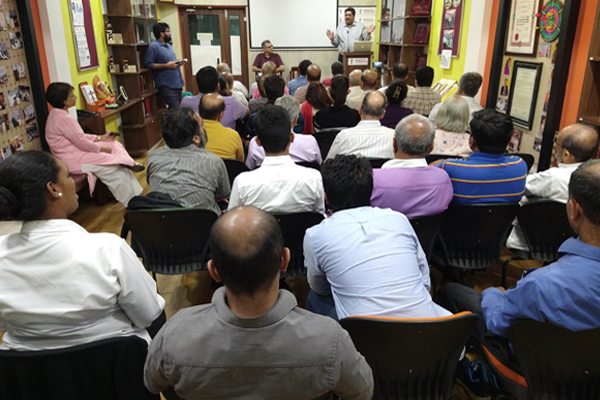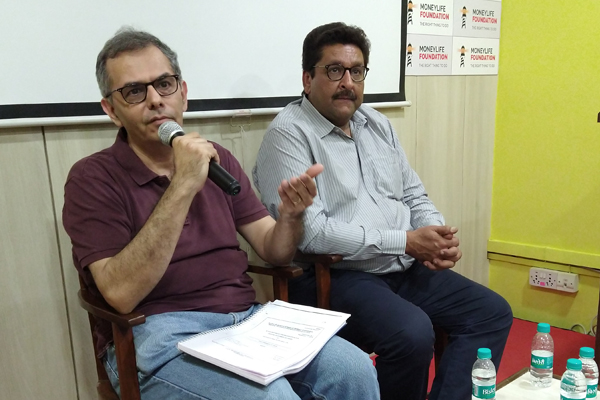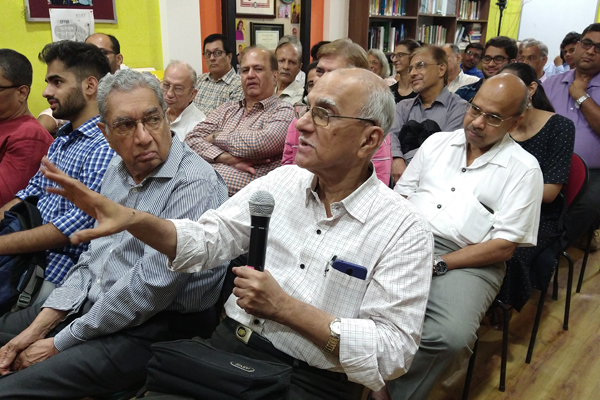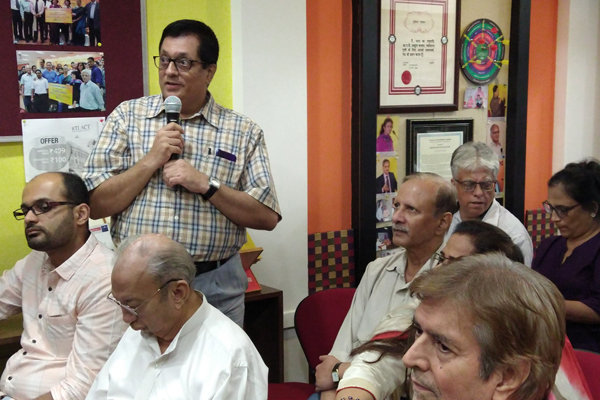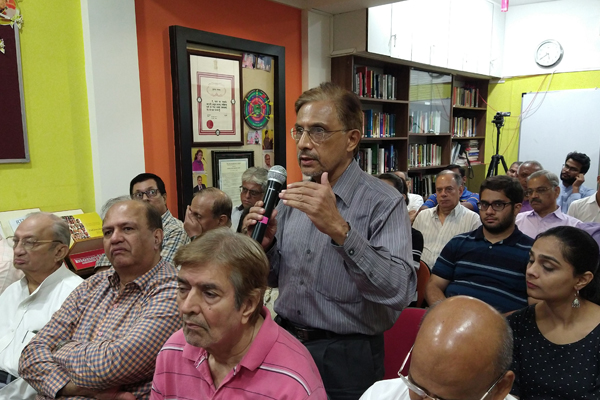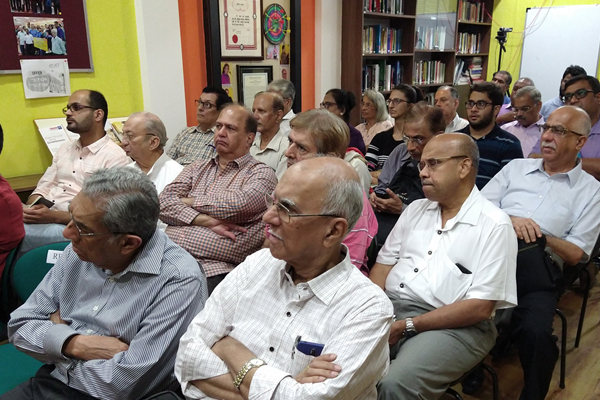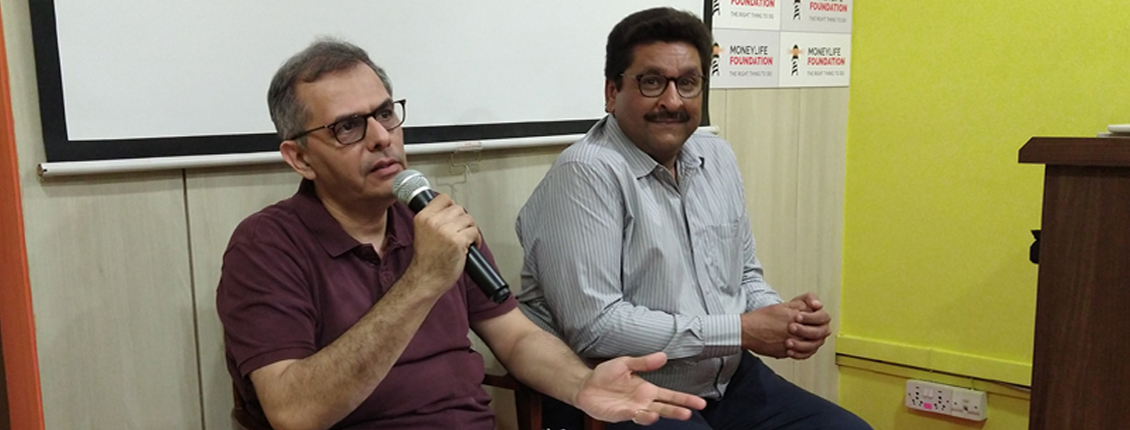
“We need to have more transparency and the citizens of India deserve proper access to justice and legal transcription services are a very important addition that is needed in our judiciary,” says Amrish Kilachand while speaking at an event organised by Moneylife Foundation on the importance of legal transcriptions.
Mr Kilachand, a businessman by profession, had filed an intervention application in the Supreme Court to move the court to approve transcription services for all courtrooms in India, similar to what they have in Canada, the US, UK, Canada, Australia and other nations. The original petition, Mr Kilachand had joined as an intervenor, was filed by senior advocate Indira Jaising. Mr Kilachand was represented by Advocate Jamshed Mistry in the Supreme Court, who was also present for the session at Moneylife Foundation.
The event started with the presentation of two short videos, which showed how live steaming of court proceedings take place in Canada and more recently on a trial basis at Madurai in Tamil Nadu.
Using these videos, Adv Mistry explained how a live streaming of courtroom proceedings is truly seamless and to the point without any interruption from the recording systems.
During his talk, Adv Mistry explained how he was surprised to receive transcript of court proceedings from a Canada court. He said, “We had a two or three hour hearing and in the evening when I met my client, he suddenly pulled out a sheaf of papers. It turns out he had the order sheet and legal transcriptions of the entire proceedings of what had occurred in the court earlier in the day. Everything, including name, date and time.
Every single word was recorded. It is beautifully bound and given to you. There it was available in electronic form or in paper, and you can print it out if you wanted.”
Comparing this particular transcription to an ordinary copy of the order that you get in a court in India, Adv Mistry explained that in India we only get very basic details - “matter heard on so & so; order passed on so & so”.
“The stenographer in Indian courts takes down only what he or she has been told to take down and not the entire transcription of the case. The Judge reviews it and sometimes you get what you said or what you did not say at the end of the day,” he said.
Furthermore as we file our appeals based on what the Judge has put forward, there is a lot of room for misinterpretation, he added.
Mr Kilachand has been a litigant in all manner of court cases for the past almost 22 years and has experienced legal proceedings from the lowest to the highest courts across several states as well as the Supreme Court in India. He explained that the legal system is completely clogged in India with people very rarely going through “final hearings, when everything is stopped by motions that themseleves take 10-15 years”.
Elaborating on the problem he explained, “You cannot blame the judges either, because in reality a judge has over 100-150 cases before him. To actually expect him to read this kind of paperwork and come prepared the next day is ridiculous. We also have a system where judges change frequently, so there is no continuity. Counsels also change all the time.”
It is very difficult to get justice when there such problems in the judicial system. Mr Kilachand presented legal transcriptions as one means to resolve these issues. The primary advantage a legal transcription provides is transparency; it also binds all the parties involved - the litigant, the lawyer and the judge, he added.
He says, “Everyone will have to careful in what they say when each and every word they say is being transcribed. You cannot come next day and say that I did not say this or that. It will inevitably clean up the whole system.”
Even the problem of frivolous litigation will disappear as it will put pressure on the lawyers and litigants when every word said in the courtroom is being recorded, he added.
In India we established court system of a plethora of judges, litigants, advocates, and witnesses appearing on a daily basis and expect that they all carry out their functions effectively while being well acquainted with the rules and regulations of the courtroom.
A video recording of court proceedings, can play a crucial role in creating awareness among everyone involved and would in turn regulate the behaviour of the masses in the profession. It would also undoubtedly benefit in increasing transparency in the judicial system, both Adv Mistry and Mr Kilachand opinioned.


